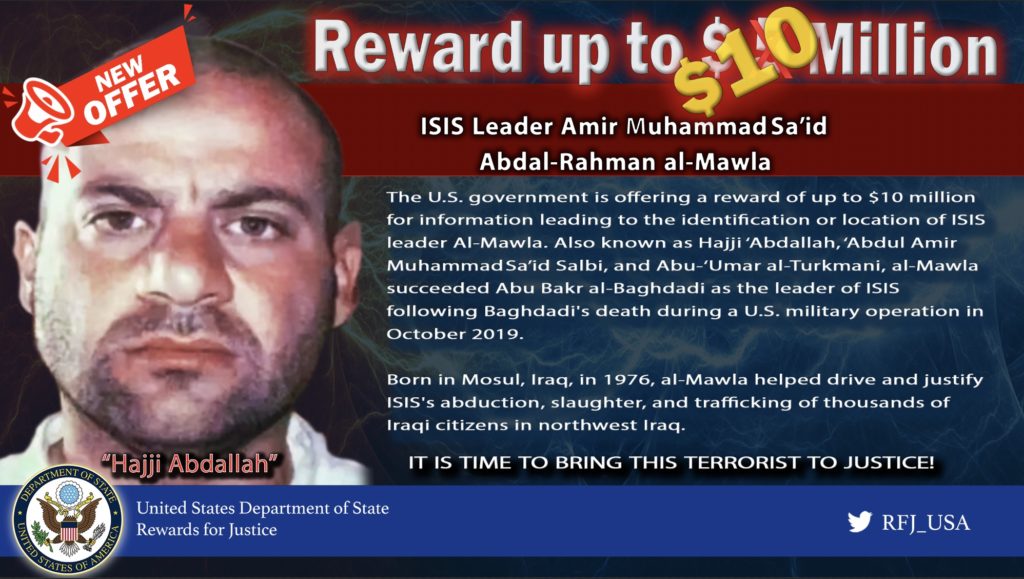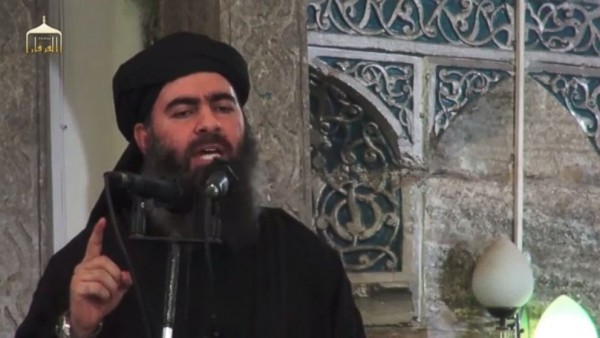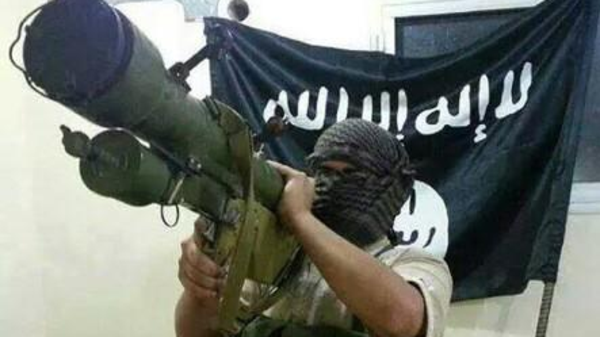The new leader of ISIS has been captured just three months after the terrorist group’s last chief was killed.
Abu al-Hassan al-Qurayshi was reportedly captured in a recent raid in Istanbul.
He is said to be the brother of slain former ISIS caliph Abu Bakr al-Baghdadi and took over as chief just three months ago after the death of Abu Ibrahim al-Quraishi, 45.
The death of Qurayshi was another crushing blow to ISIS two years after the violent Sunni Muslim group lost long-time leader Abu Bakr al-Baghdadi in a similar raid in 2019.
Abu Ibrahim al-Quraishi, who was otherwise known as ‘The Professor’ and had a $10million bounty on his head, set off a suicide bomb that killed himself as well as members of his family, after US forces swooped in on his northern Syrian camp.

Yet now anti-terror police believe they have captured the elusive new leader of ISIS, of whom there are no known photographs in existence.
Turkish President Recep Tayyip Erdogan is set to announce al-Hassan al-Qurayshi’s capture in the coming days, OdaTV said.
Officials said the terror chief was arrested after a long police surveillance and that no shots were fired during the raid.
Analysts in various countries agree ISIS is under more pressure than it’s ever been and will never restore its self-styled caliphate. But they are divided on how significant a setback Qurayshi’s death is for the group.
Some say the fight against ISIS will suck in the United States and its allies for years to come as it develops into a permanent insurgency with new leaders ready to take the reins.
‘In Syria, Islamic State units work as a devolved network of individual groups in order to avoid them being targeted. We don’t therefore believe that Qurayshi’s death will have an enormous impact,’ one of the Iraqi security officials said.
‘It’s also become more difficult to follow them because they’ve long stopped using mobile phones for communication.’
Since their territorial defeat in Iraq in 2017 and Syria in 2019, Islamic State leaders have found it increasingly easy to move between the two countries, helped by a gap in areas of control between different armed forces, some officials say.
Security and military officials said the 600 km (372 mile)long border with Syria made it a very hard for Iraqi forces to prevent militants infiltrating via underground tunnels.
Lahur Talabany, former counter-terrorism chief for Iraq’s autonomous Kurdistan region, said some IS leaders can travel on a route across the full expanse of Iraq.
‘When you see attacks increasing in a particular area I wouldn’t be surprised if somebody important has been through that region,’ he told Reuters.
‘The caliphate was defeated but ISIS was never eradicated. I don’t believe we managed to finish the job.’
Abu Ibrahim al-Hashimi al-Qurayshi’s role as the head of ISIS meant he carried an American bounty of $10 million – yet at other times in his complicated life, the man nicknamed ‘The Professor’ had also been a U.S. informant.
During his rise to the top of the terrorist group he was known as cruel but popular figure among the ISIS rank and file.
He replaced Abu Bakr al-Baghdadi after his predecessor blew himself up with a suicide vest during a U.S. raid in 2019.
His real name was Amir Mohammed Saeed Abdul-Rahman al-Mawla. But on being elevated to the top job he took the nom de guerre of al-Qurayshi – a name that signifies links to the tribe of the Prophe Muhammad.
In his two years at the top, he kept himself hidden away. There are almost no public photos of him in existence and he did not take part in ISIS propaganda videos.
Earlier in his career he is believed to have been an officer in Saddam Hussein’s military who forged an alliance with al-Baghdadi in prison before becoming his enforcer and chief policymaker.
Al-Qurayshi was once known to U.S. officials as a cooperative informant, who divulged details to American forces on the Islamic State in Iraq. He was captured in 2007 or 2008, and spent months in an American detention camp in Iraq.
Defense Department documents described an at-times ‘cooperative’ informant who under interrogation revealed details on the group that he would go on to lead.
According to a statement by Amaq, ISIS’s press agency, Baghdadi appointed Al-Qurayshi to run the group’s day-to-day operations in August 2019, making him the heir-apparent before his former boss killed himself during the raid by US forces in Syria.
In 2020, the U.S. doubled the bounty on the new ISIS leader’s head to $10 million. But al-Qurayshi maintained a low profile – he did not appear in public, and rarely released any audio recordings. His influence and day-to-day involvement in the group’s operations is not known, and he has no known successor.
Al-Qurayshi – also known as Hajji Abdullah al-Afari – was born in Tal Afar, a Sunni-majority town in Iraq, in 1976 – before joining the military while Saddam Hussein ruled the country.
Following the invasion of Iraq by the US in 2003 and President Bush’s move to disband the country’s military, he found himself locked in jail accused of having links to al-Qaeda.
Languishing in a cell at Camp Bucca, al-Qurayshi formed a close bond with Baghdadi, who was then fomenting the extremist religious code that would provide the ideological grounding for the death cult that became ISIS.
After his release al-Qurayshi served as a religious commissar and a general sharia judge for al-Qaeda, according to researchers at the S. Rajartnam School of International Studies in Singapore.
Al-Qurayshi was tasked with establishing an institute for training judges and clergymen in the campus of al-Imam al-Adham College in Mosul, likely in part where ‘The Professor’ nickname came from.
When ISIS emerged as a splinter group from Al Qaeda’s Syrian branch he changed allegiances, where he became Baghdadi’s enforcer.
Working close to Baghdadi,he was responsible for eliminating anyone who disagreed with his style of leadership, which is where he earned his other nickname, ‘The Destroyer’.
From there he became the group’s chief policymaker and legislator, known for enforcing its strict brand of Islam and Sharia Law punishments.
He is thought to have personally welcomed Baghdadi into Mosul in 2014 after ISIS took the city – announcing their presence as the world’s foremost terror group.
It was from the minaret of the Great Mosque of al-Nuri in Mosul that Baghdadi gave a speech announcing the formation of ISIS’s so-called Caliphate.

In capturing Mosul, ISIS had killed thousands of Yazidi residents, and enslaved Yazidi women under the guise of enforcing Sharia law.
There were disagreements among ISIS leadership about enslaving the Yazidi women, but it was al-Qurayshi led the organization’s more extremist leaders in insisting on it, according to News Lines Magazine.
President Joe Biden said al-Qurayshi was directly responsible for the prison strike, as well as the mass killings of the Yazidi people in Iraq in 2014.
‘He was responsible for the recent brutal attack on a prison in northeast Syria … He was the driving force behind the genocide of the Yazidi people,’ Biden said Thursday. ‘We all remember the gut-wrenching stories, mass slaughters that wiped out entire villages, thousands of women and young girls sold into slavery, rape used as a weapon of war.’
On August 7, 2019 Amaq announced that al-Qurayshi had taken over day-to-day running of the terror group, while Baghdadi concentrated on drumming up religious fervour in the group’s aims.
The selection of al-Qurayshi drummed up debate within ISIS, even reaching its members in prison, over whether he was of Turkmen or Arab origin. The ‘caliph’ of ISIS must be a descendant of the prophet Mohammed, therefore an Arab.
Al-Qurayshi was keen to prove his Arab origin. Until 2020, U.S. and Iraqi officials believed the head of ISIS was a Turkman, which they weaponized to undermine his claim to leadership. Late reports confirmed his Arab descent.
Al-Qurayshi spent his last days in Idlib province, an area held by insurgent groups hostile to ISIS.
THE DAILY MAIL


Leave a Reply
You must be logged in to post a comment.